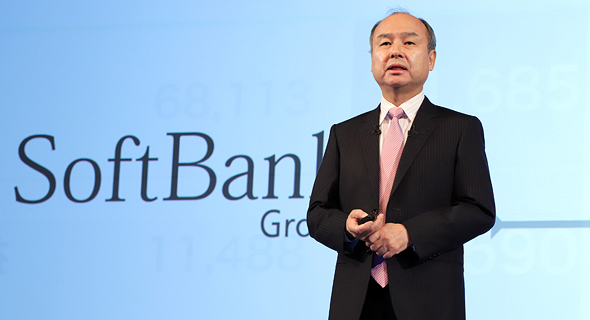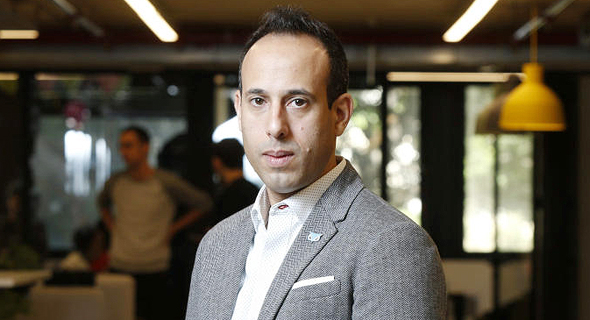
In Depth
The Unicorns Gallop Ahead Despite All Warning Signs
WeWork's failed IPO will hold back investors but it will not change the easy availability of money in the industry. Dozens of companies passed the $1 billion valuation mark with no regard to traditional financial parameters, and it is the economy and the employees that may pay the final price
Some call it the SoftBank effect. Some say that, much like they did two decades ago, the market rules are changing. Others have offered a more accurate description of the current tech investment situation: cash flooding. WeWork's initial public offering fiasco has become a symbol of the enormous gap between private and public valuations, and the capitalization crash of what was supposed to be the next big tech star will likely serve as a warning sign for investors.
SoftBank, whose enthusiastic support boosted WeWork—and similar companies like Uber—to its previous dizzying heights, is already beginning to reconsider its strategy. Softbank founder and CEO Masayoshi Son is reportedly considering changing his investment model to give a bigger weight to profitability. It is still early to say if the WeWork precedent, a company that lost $3.5 billion in three years, will be a turning point for the market. Currently, it does not seem to have a deep impact. The reason? There is just too much easy money, and not enough companies that are raising funds.
The miniscule interest rates seen globally for the past decade are getting even lower, bond yields are reaching such negative territory that they might as well spell out "pay me for the privilege of depositing your money," and after ten years of hikes, the stock market no longer seems inviting. More and more investors are looking for the alternative routes that were once the purview of professionals and thrill seekers—tech companies. Billions of dollars are flooding the market: from wealthy families and hedge funds looking to replicate past returns to multinationals from every sector of the industry, joined by private funds and the angels who have cut their teeth on smaller, less risky companies.
Israel has become a main attraction for much of that money, and the result of the union between the country's booming tech scene and the almost unlimited funds available is a new bevvy of unicorns. In just one July weekend, Lightricks Ltd., Monday.com Labs Ltd., and Israel-linked Compass Inc. raised giant rounds at valuations of over $1 billion each. In August, Cybereason Inc. raised $200 million at a similar valuation, while Rapyd Financial Networks Ltd. and Next Insurance Inc. did so in October. In the background are the many smaller rounds of $20 million to $30 million that have become so commonplace they are almost an everyday occurrence.
While this herd of unicorns is cause for celebration, the question must be asked: why are so many companies suddenly worth such astronomical sums? How can we rationalize a company that was worth around $250 million last year has suddenly tripling or quadrupling its worth? The common explanation is that valuations grow with increased revenues, but is profitability—or at least the promise of profitability—no longer an important factor? With so much money available, it seems valuation is now more a matter of supply and demand than of traditional financial parameters.
Even WeWork's recent carnage and Uber and Lyft's inability to achieve liftoff are currently not enough to stop the tech cash flood. The median deal size for a late-stage U.S. startup reached $400 million in 2019, according to recent Pitchbook data, up from $295 million in 2018.
So how exactly is a unicorn created, and who are the big players in the global tech industry, which sees $700 billion invested a year? And what is that kind of money doing to Israeli ecosystem?
The huge sums being infused into private companies today enable them to stay private for much longer, creating deformities that are often undiscovered before they go public, Yossi Vinitski, who heads the tech arm of Israel-based Bank Hapoalim, said in a recent interview with Calcalist. Vinitski, who started his career in the venture capital industry, explained that current valuations are being impacted by factors that are not always anchored in reality, including a desire to avoid a downround and the valuation of similar companies on the market.
In earlier rounds, when companies have yet to generate revenues or achieve a near-complete product, valuation is often the result of negotiations between the founders—who arrive with a certain self-image—and investors. The more interest, the higher the buzz and the valuation, with the final say often falling to the investor willing to put in the most money. In Israel, the ecosystem is small and composed mostly of military veterans from the right units or alumni of specific university departments. Lightricks, for example, was founded by several doctoral students from the Hebrew University of Jerusalem, and received offers from local investors before they even started looking for external funding.
In the later growth stages, when companies already have a market and revenues, financial parameters start gaining importance, but the criteria usually differ from those affecting public companies. While revenues still matter, other traditional parameters have been pushed aside for more novel ones. "An annual growth rate of under 30% a year is no longer attractive, and investors are looking for 50% and over," a leading venture capital executive told Calcalist on condition of anonymity.
The reason so many investors are looking at market share as a critical parameter has to do with the turning point many traditional sectors have found themselves in. Technological advances are now disrupting many traditional sectors, and the buzz-worthy companies are those making a bid for the big markets. This is a conceptual change for Israeli companies, which in the past used to target rather smaller niches. Now companies like Waze, Gett, Via, and Taboola—which announced a merger with rival Outbrain earlier this month—boosted Israel to the big boys club, where they compete head to head with multinationals.
A good example is Israeli video creation startup Magisto Ltd., acquired in April by video streaming company Vimeo. While not a large exit, it couldn't have happened if Magisto hadn't pivoted from its original target market, video analysis for security purposes, to the much larger video editing market.
These days, the popular plan seems to be for a company to first secure a large market share, become the "Uber" of its sector, and only then start working towards profitability. That approach is of particular importance in sectors where brand loyalty is high. And it is here that—in order to pay lip service to shareholders—new disruption economy terminology appears. Unit economics basically means ignoring looming losses of hundreds of millions, perhaps even billions of dollars, and instead breaking everything down to its smallest parts: how long does it take to recruit a client, how long will that client remain loyal, churn rate, and how much profit can be made off one client under a specific framework.
According to Vinitsky, if a company has achieved annual revenues of $15 million to $20 million and cannot break down its unit economics, something isn't working. "Unit economics is the favorite phrase of all giant companies who listed this year," he said.
Some parameters used to determine the valuations of the biggest companies are, in fact, still important, Vinitski said. These include the calculated cost of recruiting a client, how long will that client stay loyal, and churn rate. Investors use all these parameters together to predict a company's future revenues, and decide its valuation on that basis.
All of today's buzzwords coalesce into the traditional valuation method of discounted cash flow (DCF), according to Guy Preminger, partner and technology leader at PwC Israel. The importance placed on profitability fluctuates, with the market placing a bigger emphasis on growth at some times and on profitability at others. At the moment, growth tops the list, but the wind is starting to change, he said. The first glimpses of change can already be seen in Masayoshi Son's intention to focus more on profitability following the WeWork debacle and Uber's immense losses that overshadow its impressive growth.
Is cash flooding and new methods of determining valuation warping or inflating the market? In some sectors, yes. While no one is willing to acknowledge it on record yet, behind the scenes, many insiders now believe that valuations in the autonomic vehicle sector are disconnected from reality, especially now that leading players are starting to admit that this dream is still far away, technologically speaking. In the past few months, especially since Mobileye co-founder and CEO Amnon Shashua authored a piece stating autonomous vehicles are feasible mostly in the public transportation market, almost no new funding rounds were seen for companies in the domain, a stark contrast from the hype experienced in 2018. The cyber sector is also starting to experience some skeptics, especially from more veteran players who put a larger emphasis on technology.
Valuation is not everything, Vinitski said. "Unicorns are somewhat of a self-fulfilling prophecy, and the value of being a unicorn is mainly being mentioned on the right list and in the right article." Investors in private companies have certain safeguards against devaluation that shareholders of public companies don't, he said. "If, for example, the current round will be held according to a $10 million company valuation, but the next round will be held according to a $5 million company valuation, clearly the earlier round will be corrected retroactively to result in additional shares, and then a weighted average is calculated so the valuation written down in the books is $7.5 million," Vinitski explained, shedding light on why valuation is often more relevant to media publications than to investor returns.
Merav Weinryb, a managing director at Qualcomm Ventures who oversees all of its investments in Israel, told Calcalist that Qualcomm has recently skipped several investment opportunities in the automotive industry. Without disclosing any names, Weinryb said that the entrance of strategic investors who care less about valuation led to a significant hike in company valuations. "We couldn't justify the valuation considering the stage the company was in, so we didn't make an investment."
The market today certainly has sectors with inflated valuation, where the large amount of funding causes imbalance, Preminger said.
The easy availability of money means good companies don't have to look for a quick exit but can instead afford to grow and achieve high revenues first before going public or selling, but the competition can inflate valuations artificially, Weinryb said. Too high valuations during the early stages of the company can hinder its ability to raise funding in later stages, and can also endanger future returns for investors, leading to less venture capital investments in the long-term, she said.
Despite some raised eyebrows over companies that state they can become profitable whenever they choose to, the industry has become so accustomed to easy money that few companies fail to raise funds even with dubious products. As long as the current situation continues, everyone will continue investing.
2019 had seemed like a turning point, with the number of tech companies choosing to go public on Wall Street jumping sharply after years of drought. But many of those decisions were influenced by the fact that U.S. interest rates seemed on the rise. Many companies have opted to make use of a window that suddenly seemed about to close: after all, a public company can almost always raise money despite varying conditions, while a private company might have suddenly discovered private money has dried up. Now, under President Donald Trump, it seems interest rates are about to get even lower, and private companies might choose to remain private longer, where they can hide the worst of their failures from the public.
What do companies do with their often disproportionate influx of funds? Excess money is not all bad. It gives entrepreneurs, employees, and traditional shareholders the ability to make long-term plans without pushing for an exit, especially now that secondary funding rounds have become more commonplace. It gives companies the money they need to invest in marketing and sales, enabling them to increase their market share. But the most important change has been that large private companies have started to do something that used to be the purview of public companies—acquisitions.
In May, Israel-based business intelligence startup Sisense Ltd. announced the acquisition of the assets, people, and overall business operations of cloud data analytics company Periscope Inc. for a reported $100 million. To fund the acquisition, Sisense used money from an $80 million round it raised at the end of 2018. The round, which brought the company’s funding to date to $200 million, was raised according to a company valuation of $600 million.
In June, Israel-linked Trax Image Recognition acquired Silicon Valley-based shopping rewards app Shopkick Inc., and in July it added image recognition company Planorama to its assets, using a $100 million round raised between May and July. Trax previously made two smaller acquisitions.
Acquisitions made as a private entity enable companies to bring a more complete product to market, upping value. This tactic wasn’t really available to Israeli companies up until a few years ago, Preminger said.
Vinitski pointed out the less positive side of the cash influx. “For example, a company that raised $4 million or $5 million in seed but only needed $1.5 million sometimes spreads itself over too many areas it didn’t really need to,” he said. “If it only had $1.5 million, it would have focused on the objective and not on irrelevant things.”
Too much money also leads to unreasonably steep wages, which can hurt the company’s performance and attractiveness in later stages, Weinryb said.
In Israel, which has become a land of unicorns, there are already those who have pointed out how strange the phenomenon is. Last week, Lightspeed Venture Partners partner Jeremy Liew tweeted that “approximately 31% of companies included in the global unicorn club are valued at exactly $1B."
This is not a coincidence—startup founders, both in Israel and abroad, have started to explicitly state their desire to become a unicorn at any cost. It helps attract quality employees, get media headlines, and bring in customers. Some founders tell their shareholders “we want the $1 billion price tag, give us your terms,” and at the end, it is usually not the founders or shareholders who pay the price but the employees. Shareholders have safeguards against devaluation and founders have preferred stock or sell out early, while employees have to wait until an exit or IPO to see returns and often lose out as valuations fall.
Related stories
That’s not all: founders and CEOs are fond of pointing out that they can move to profitability ahead of an IPO by slashing marketing and research and development costs. That statement hides a nightmare for tech employees—a quick fall from the heights of subsidized meals, luxury offices, and generous option plans.
For a small country like Israel that relies so much on its tech industry, the ramifications can be dire. Israelis who have been around the burst of the dotcom bubble can remember just how quickly the belt was tightened in 2000, and the effect it had on the entire economy, from import to restaurants.



1 Comment Add Comment